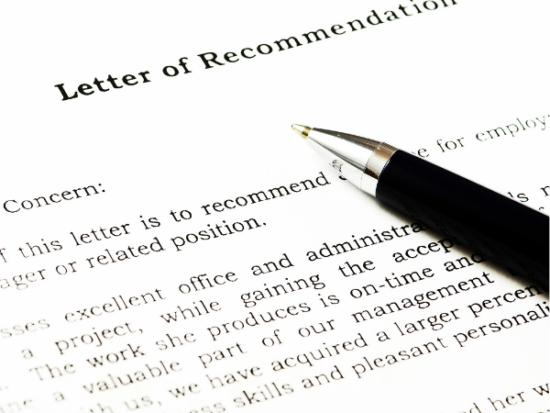How to write a letter of recommendation
Knowing how to write a letter of recommendation will most probably come in handy at some point in your career. A friend, a student, or a colleague could ask it you anytime. Also known as reference letters, letters of recommendation are positive endorsements of a person’s skills and work capabilities.
These letters are often written by someone who has known the person for years or has worked with them for a certain amount of time, enough to know their work ethics and character. The way you compose the letter may make all the difference for someone’s career or application. Not sure how to write a good letter of recommendation? Follow the steps listed in this article, and you’ll be a pro in no time.
Types of recommendation letters

The first thing you need to know about recommendation letters is that they aren’t all the same. There are three main types: Professional references, character references, and academic references. The first one is usually a written letter by a supervisor, colleague, client, or co-worker. If you have a work junior asking you for one, you will need to include their position, responsibilities, and qualifications for potential employers or promotion.
Personal or character references are letters written by someone who has a personal relationship with the person asking for the recommendation. If you’re a family, friend, neighbor, or personal acquaintance, you can include the person’s personality, character, positive attitude, and anything else that would apply in a job or school setting.
The last type is an academic reference. You may have already guessed from the name alone. This letter is usually required as part of applications for school programs, universities, or student exchange programs. Admission officers will look at this reference letter to see if a student or participant is qualified.
Related Article: How to Launch a New Business for Less than $500
Writing a letter of recommendation.
Your letter of recommendation should include at least the following: An introduction stating who you are, an overview of the applicant and what the recommendation is for, your personal experience with this person, closing remarks that summarizes why you recommend the person, and your signature with your contact information.
If you’re having a tough time coming up with writing, you can ask for the person’s resume or portfolio. Along with their resume, ask for the details on who to address the letter to and what it is for. It is important to note that there is no way to write the perfect recommendation letter. The best you can do is write a genuine one that will hopefully help the person who asked for it.
Introduction
Unless you’re filling out a business letter format, you will need to write an introduction. Begin with salutations to whom the letter is addressed and follow up with a greeting, just as you would with a regular letter or mail. If you are writing an academic reference letter, address the Admissions Committee, Officer, Hiring Manager, or Person-in-Charge.
Overview of applicant’s qualifications
For the first part of your letter, please feel free to talk about the candidate as much as you want. Mention their accolades and accomplishments, what makes them suitable for the role or admission, their personality and work ethic, and other relevant information. Be sure to mention the applicant’s name, current position or company, connection to you, and then follow it up with their qualifications. This part will be the bulk of your letter and could vary in length.
Personal anecdotes and stories
The second part is optional but adds a nice touch to the letters, including personal anecdotes. Your experience with working or mentoring the referred person will better help their chances. Be specific but not too specific, right down to the date and time the candidate impressed you. Instead, cite examples of why their work ethic is exemplary. Submitting deadlines on time, great presentations every meeting, and whatever else quality.
Related Article: 12 Ways to Promote Your Business
Closing remarks and signature
As a closing statement, summarize everything you have written. Reiterate once more that you highly refer this person for this particular position or admission because of their qualifications. If you are willing to schedule a verbal recommendation or confirming that you indeed wrote the reference letter, state it in this part. Don’t forget to leave your name, mailing address, and contact information.
What is a good format for reference letters?
The writing style of your recommendation letter can be just as important as its content. A formally written, clean, and an organized letter is more likely to be viewed as professional and trustworthy. The format includes the letter’s length, spacing, and font. It can also include a cover letter if you’re feeling up to write one but isn’t necessarily required unless stated by the candidate.
A good length for recommendation letters should be more than two short paragraphs. If you plan on putting on detailed accounts of the person you are recommending and your faith in their qualifications, you can and should write concise but meaningful content. Don’t go overboard though. One page would generally suffice. As for the spacing and font, go with the readable ones. One-inch margins and traditional fonts like Arial and Times New Roman work best.
Related Articles
How do you respond to a request for a letter of recommendation?
If you’ve been in your field of work for quite some time, chances are you may have had to ask someone to write you a recommendation letter. Perhaps you also applied to a prestigious school program or university once upon a time and needed a teacher or mentor to vouch for you. Did you take note of how they responded? If they responded to your request positively, it’s good to take your cue from them. If the person asking for a recommendation has a positive relationship with you, it’s probably a no-brainer for you to agree.
Depending on the kind of person you regard, things like this, people may ask for reference letters via email, informal chats, or ask you in person. The best way to go about it is to be professional. Bring up concerns if you think you aren’t qualified to write the letter or have someone else in mind to help the candidate. Also, ask for a lead time, so you aren’t rushed when writing.
Summary
Letters of recommendation are positive endorsements of a person’s skills and qualifications. To write a good and genuine one, you need to have a healthy relationship with your recommending person. If you have no idea how to start writing the letter, ask for their resume and the job description or admission they are applying for. It’s always a good start to get to know the person better apart from their accolades. You can glean a lot from a person’s character.
Whether you are writing a personal, professional, or academic recommendation, the important thing is your credibility as the candidate’s endorses. Admission officers and hiring managers will appreciate an honest reference rather than a flowery one. Remember that you can vouch for a coworker or a friend but do it as honestly as possible.




